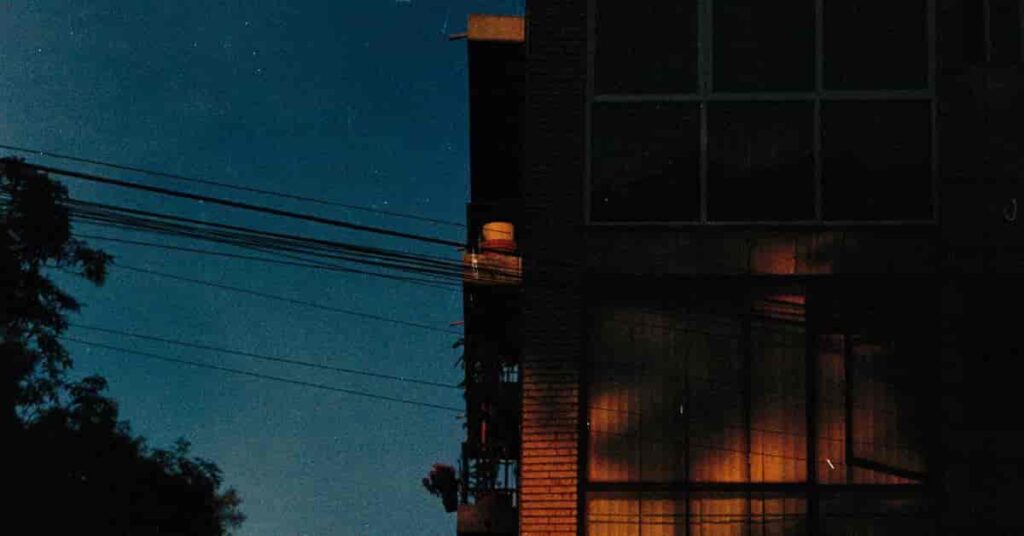Ek naye jaal mai dekho, fasaane roke hai
ایک نئے جال میں دیکھو فسانے روکا ہے
وفا کی خائی میں ہمیں گرانے روکا ہے
Ek naye jaal mai dekho, fasaane roke hai
Wafa ki khaai mai humein giraane roke hai
False promises wove a new web, while loyalty became a punishment waiting to happen.
عشق و محبت کا سہارا لے کر
ہر کوئی پیاس اپنی بجھانے روکا ہے
Ishq-o-mohabbat ka sahaara le kar
Har koi pyaas apni bujhaane roka hai
Love was no longer shared; it was taken selfishly, dressed in sincerity.
نہ گیا نظروں سے دور اور نا جائے گا
غلطی کا میری احساس دلانے روکا ہے
Na gaya nazron se door aur na jaayega
Galti ka meri ehsaas dilaane roka hai
A haunting presence lingers, not to comfort but to remind.
الفت کی را ہوں میں ملے داغ و دھبے
اس کو تیزاب سے وہ مٹانے روکا ہے
Ulfat ki raahon mein mile daagh-o-dhabbe
Us ko tezaab se woh mitaane roka hai
Rather than healing with care, they chose destruction to hide the pain.
ایک وہی شخص بہت دور ہے مجھ سے
ہر کوئی دیکھو اب مجھے پانے روکا ہے
Ek wohi shakhs bahut door hai mujh se
Har koi dekho ab mujhe paane roka hai
The one I long for is gone, and those who remain only hold me back.
ہے ہمیں معلوم نہیں ملنے والی منزل
ہاں! دل میرا یہاں کسی بہانے روکا ہے
Hai humein maaloom nahi milne wali manzil
Haan! Dil mera yahaan kisi bahaane roka hai
Perhaps the journey matters more than the arrival, but even that was interrupted.
ہے یہی پاس میرے وہ کسی کونے صوفی
تو تصویر تیری کیوں وہ جلانے روکا ہے
Hai yahi paas mere woh kisi kone Sufi
Toh tasveer teri kyun woh jalaane roka hai
When the soul still holds on, what’s the point of trying to let go through fire?
Urdu Ghazal by Sofiya Shaikh Srm

What the Poet Conveys
This ghazal, “Ek naye jaal mai dekho, fasaane roke hai,” reflects the bittersweet entrapment of love, how devotion, betrayal, and longing intertwine. The poet speaks of being stopped not just by people, but by destiny itself, as love burns, heals, and repeats. Every stanza is a quiet rebellion against forces that interrupt the journey of the heart.
Word Meanings & Interpretations
فسانے (Fasaane) – Tales / Stories
In Urdu poetry, “fasaana” is more than just a fictional tale. It’s a vessel of unsaid emotions, faded truths, and half-told memories. It often represents the illusion of life: stories we tell ourselves to survive, or those that others impose upon us. A fasaana may sound like fiction, but it usually hides real wounds beneath its beauty.
In romantic or tragic contexts, fasaana becomes a metaphor for unfulfilled love, broken dreams, or the false hopes that lovers cling to. It holds the paradox of being both a shield and a scar—offering escape while quietly reminding us of what was lost.
To call something a fasaana in Urdu is to admit: “It may have never fully happened, but it deeply mattered.”
خائی (Khaai) – Trench / Deep Pit
In Urdu poetry, “khaai” is a haunting metaphor for the emotional downfall one experiences when love turns into suffering. It represents a depth that pulls you in quietly, often without warning. Falling into the khaai of wafa (loyalty) is not just about heartbreak; it is about being punished for being too sincere, too trusting, too true.
A khaai is not just a physical void, but a spiritual collapse, a space where your intentions remain pure, but the world around you misreads them. It reflects how sometimes, faithfulness becomes your undoing, and the more honest your love is, the deeper you fall into sorrow.
In this way, khaai speaks of a love where the heart was right—but destiny, cruel.
تیزاب (Tezaab) – Acid
In Urdu poetry, “tezaab” is a potent metaphor for destruction disguised as healing. It symbolizes the painful attempts to erase emotional scars, not with gentleness, but with something even more harmful. Just like acid burns through the surface, in poetry, tezaab reflects the violence of denial, the urge to remove love, memories, or shame in a way that only deepens the wound.
It speaks of the moments when people try to force forgetting, to burn away the past, thinking the pain will vanish—but instead, it leaves permanent marks on the soul. In love poetry, it shows how the effort to cleanse a heart often destroys what made it human in the first place.
Tezaab, here, becomes the tragic irony, where the cure turns cruel, and forgetting becomes more painful than remembering.
صوفی (Sufi) – Mystic / Spiritual Being
In this poem, “Sufi” appears not just as a figure, but as a whispering presence—a quiet observer tucked away in a corner of the heart or room. The Sufi may represent the poet’s higher self, spiritual conscience, or even the part of the soul that seeks truth over ego, love over revenge.
Where the world demands forgetting, burning, and moving on, the Sufi gently pauses and asks: “Why erase what shaped you?”
It becomes a voice of restraint, a protector of memories that were once sacred.
In the act of trying to burn the tasveer (image), the Sufi doesn’t stop the fire out of weakness, but out of wisdom. Because sometimes, in the ashes of love, there are truths that deserve to remain untouched.
Read More by Sofiya Shaikh Srm
Follow on Instagram: Sofiya Shaikh Srm

